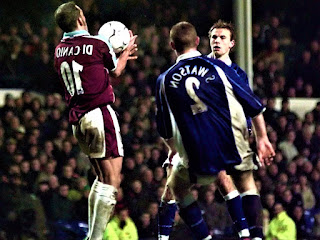Ethical Psychology (1) - Fair Play
Ever wondered why people make ethical choices? Let's start with a cool story about a soccer match.
Picture this: a tied game, an injured goalie, and a player who could've scored but didn't. Sounds puzzling, right? That's where ethical psychology comes in. It's like a secret map to understand why we do the right thing. This story is just the beginning – a sneak peek into how our minds work when faced with tough decisions. So, lets go into the awesome world of ethics!
In the video provided at the end, there is a scene from a football match in London between West Ham and Everton.
The crucial match was tied with one goal each. In the final moments, West Ham was launching an attack on Everton's goal.
In an attempt to stop the attack, Everton's goalkeeper, Musa Paul, accidentally fell outside the penalty box due to a muscle spasm.
The ball came to West Ham's player who passed it to Paulo De Canio, who was standing in front of an empty goal. All he had to do was kick the ball in to win the match.
Sportsman Spirit:
However, De Canio picked up the ball with his hands and gestured to the fallen Everton goalkeeper, indicating that he wouldn't score since the opposing goalkeeper was injured and unable to defend.
The spectators reacted immediately, applauding De Canio's action, with both teams' fans appreciating the sporting gesture.
FIFA's Recognition:
After a while, the match ended, and West Ham's team couldn't win due to De Canio's action.
FIFA (Fédération Internationale de Football Association) applauded the gesture and awarded De Canio the Fair Play award.
De Canio, an Italian player, had a reputation as an aggressive player, and there were several controversies in his career.
He received a long suspension once for pushing the referee after being shown a red card. He also faced criticism for showing a fascist salute to his supporters after scoring a goal in a different incident.
Ethical Questions
De Canio's action raises some fundamental ethical questions.
Analyzing the situation, it was an instinctive action rather than a deliberate decision.
As soon as the ball came to him, he had already made up his mind. The football rules did not prohibit him from scoring, and neither he nor any player from his team violated any rule by stopping play.
Even if he had scored, it wouldn't have caused any harm or injury delay to the fallen goalkeeper.
As a player, his goal was to win for his team, and that's the agreement players have with their clubs who pay them handsomely.
Players give their all to achieve victory. Did De Canio betray his commitment by consciously missing this opportunity?
Was it an act of disloyalty towards his team?
However, the match spectators, team managers, football enthusiasts, and FIFA were in agreement that not scoring was ethically correct.
But why? Here we need to understand Human psychology.
Human Psychology
To understand this, we need to explore the human psychology aspect - this is the subject of ethical psychology.
This highlights the importance of understanding human psychology. The complexity of moral reasoning, emotions, and social norms plays a significant role in shaping how individuals make ethical decisions.
In the next posts, we'll talk more about why people make ethical choices and how their thoughts and feelings influence their decisions.
We'll look into how people develop their sense of right and wrong, how they understand and care about others' feelings, and how society's influence can shape their behavior.
(Continued...)
To grasp this, we can refer to the book written by renowned social psychologist Jonathan Haidt.
VIDEO LINK: De Canio's Fair Play Game

